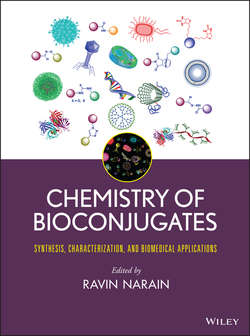Описание книги
Explores bioconjugate properties and applications of polymers, dendrimers, lipids, nanoparticles, and nanotubes Bioconjugation has enabled breakthroughs across many areas of industry and biomedicine. With its emphasis on synthesis, properties and applications, this book enables readers to understand the connection between chemistry and the biological application of bioconjugated materials. Its detailed descriptions of methods make it possible for researchers to fabricate and take full advantage of bioconjugates for a broad range of applications. Moreover, the book sets the foundation for the development of new applications, including assays, imaging, biosensors, drug delivery, and diagnostics. Chemistry of Bioconjugates features contributions from an international team of leading experts and pioneers in the field. These contributions reflect the authors’ firsthand laboratory experience as well as a thorough review of the current literature. The book’s six sections examine: General methods of bioconjugation Polymer bioconjugates Organic nanoparticle-based bioconjugates Inorganic nanomaterial bioconjugates, including metals and metal oxides Cell-based, hydrogel/microgel, and glyco-bioconjugates Characterization, physico-(bio)chemical properties, and applications of bioconjugates This comprehensive exploration of bioconjugates includes discussions of polymers, dendrimers, lipids, nanoparticles, and nanotubes. References at the end of each chapter serve as a gateway to the most important original research findings and reviews in the field. By drawing together and analyzing all the latest chemical methods and research findings on the physico-chemical and biochemical properties of bioconjugates, Chemistry of Bioconjugates sheds new light on the significance and potential of bioconjugation. The book is recommended for organic and polymer chemists, biochemists, biomaterial scientists, carbohydrate chemists, biophysicists, bioengineers, and drug and gene delivery scientists.
